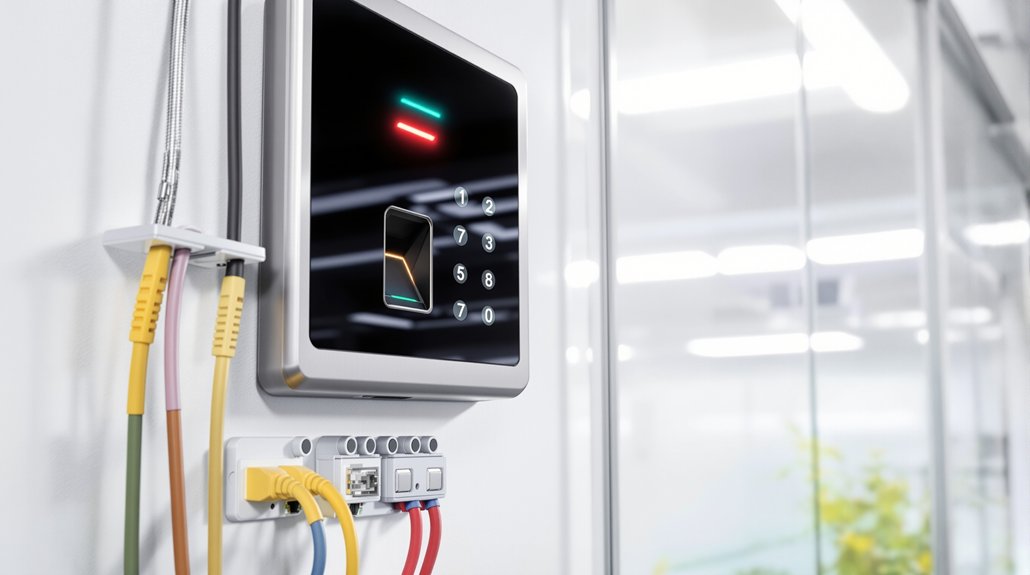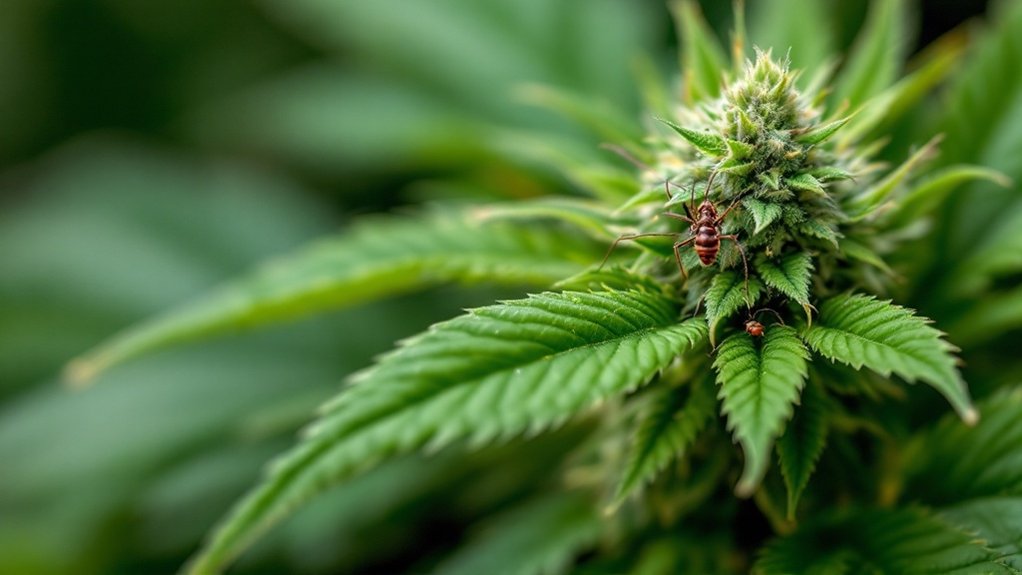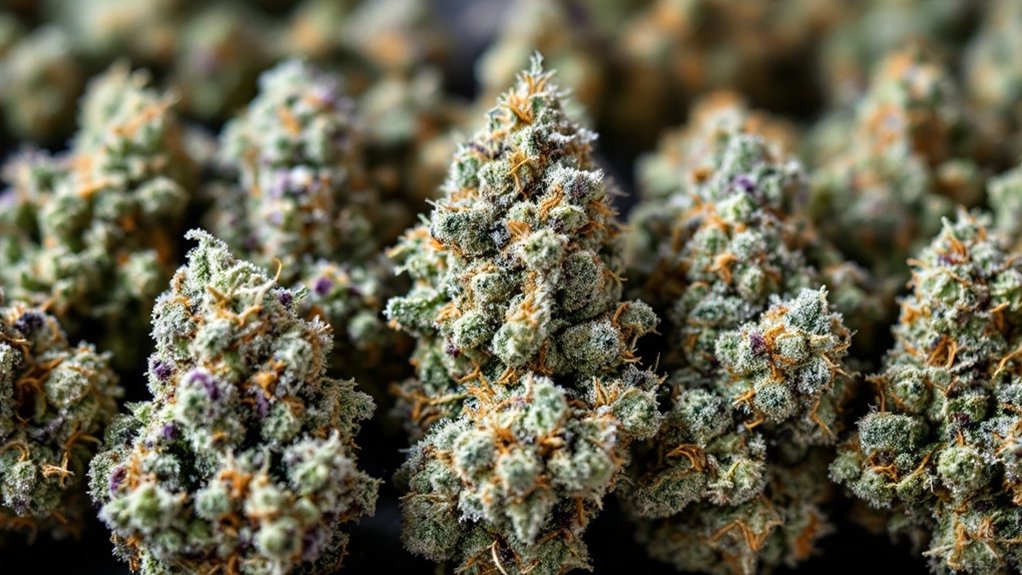The cannabis retail industry has experienced unprecedented growth, creating thousands of employment opportunities across legal markets nationwide. Professional budtender training programs have emerged as essential pathways for individuals seeking stable careers in this expanding sector. These thorough educational frameworks address critical knowledge gaps in product expertise, regulatory compliance, and customer service excellence. However, the quality and effectiveness of training programs vary greatly across different providers, raising important questions about standardization, certification value, and long-term career prospects that potential candidates must carefully consider.
Cannabis Industry Employment Landscape and Career Opportunities

The momentum of the cannabis industry has created a substantial employment ecosystem, with over 425,000 full-time equivalent jobs supporting the U.S. market in 2025. This growth reflects the sector’s projected $34 billion revenue, representing a 13.1% year-over-year increase despite recent market adjustments.
Emerging markets like New York, Mississippi, and Ohio are driving significant job creation through new licensing and expanded consumer participation.
Meanwhile, mature markets including Illinois, Arizona, and Colorado have experienced workforce contractions due to oversupply and regulatory challenges.
Career pathways span retail positions such as budtenders and managers, cultivation specialists, processing technicians, delivery staff, and laboratory testers. The industry demonstrates strong employment resilience, with year-over-year job growth of 5.4% adding nearly 23,000 new positions despite market volatility. Companies are increasingly adopting flexible staffing and temp-to-hire models to navigate market uncertainties while maintaining operational efficiency.
Ancillary roles encompass compliance, marketing, finance, and IT functions, reflecting the industry’s increasing sophistication and professional development opportunities across multiple operational areas. Many cannabis businesses still face significant banking limitations when processing payroll due to federal prohibition, creating additional administrative hurdles for employers and employees alike.
Essential Training Components for Budtender Certification Programs
While cannabis retail continues expanding across legal markets, thorough budtender certification programs have emerged as essential foundations for professional development within dispensary operations.
These extensive training systems encompass five critical components that prepare retail staff for success in regulated cannabis environments.
Product knowledge forms the cornerstone, requiring mastery of cannabinoids, terpenes, strain identification, and quality assessment techniques.
Comprehensive cannabis product expertise requires deep understanding of chemical compounds, botanical varieties, and professional evaluation methods for retail excellence.
Legal compliance training addresses regulatory requirements, documentation protocols, and ethical sales practices necessary for lawful operations.
Customer service modules focus on needs assessment frameworks, product recommendations, and professional communication strategies.
Safe handling procedures guarantee proper storage, inventory management, and contamination prevention throughout retail processes.
Comprehensive financial instruction ensures budtenders understand cash management protocols essential for the heavily cash-based cannabis industry.
Assessment components include practice examinations with minimum passing standards, typically requiring 70% or higher scores. Certified professionals typically earn higher wages than their non-certified counterparts in the cannabis retail sector.
Programs remain accessible to individuals aged 18 and older, regardless of prior industry experience, providing industry-recognized certification upon successful completion. Many programs offer 100% online delivery with flexible scheduling options for working professionals.
Accreditation Standards and Professional Credentialing Requirements

Professional credentialing within cannabis retail has evolved beyond basic training requirements to encompass rigorous accreditation standards that validate both program quality and individual competency.
The National Career Certification Board (NCCB) offers the Certified Cannabis Budtender (CCBT) designation as a voluntary national certification, while ANAB accreditation serves as a recognized standard for cannabis education programs.
These credentials primarily function at entry-level, validating foundational knowledge through proctored examinations covering compliance, product knowledge, safety, and retail best practices. Most programs require a minimum passing score of 70%, with digital badges or certificates documenting achievement.
State requirements vary greatly, with age eligibility ranging from 18 to 21 years old, and many jurisdictions mandating separate occupational licenses alongside third-party certifications for extensive legal compliance. Background checks are typically required during the licensing process to ensure candidates meet regulatory standards for cannabis retail employment. Understanding Section 280E implications is crucial for budtenders who may advance into management positions with tax-related responsibilities. Some programs include health insurance and retirement plan benefits as part of comprehensive compensation packages for certified professionals.
Program Formats and Learning Delivery Methods
Multiple delivery methods have emerged to accommodate the diverse learning preferences and operational constraints within cannabis retail environments.
Online training programs offer complete flexibility through self-paced courses accessible via any web-enabled device, typically providing 24 weeks of access for completion.
Instructor-led classroom sessions enable direct interaction, supervised practical exercises, and immediate feedback within controlled dispensary settings.
Hybrid models strategically combine online foundational modules with scheduled in-person demonstrations, maximizing budget efficiency while ensuring hands-on skill development.
Experiential learning remains essential, incorporating guided product tastings, device demonstrations, and structured shadowing with senior staff members.
Interactive platforms utilize gamification elements, including quizzes, scenario-based modules, and achievement systems to enhance engagement and knowledge retention throughout the training process. Monthly sessions for new product introductions and regulatory updates ensure staff remain current with evolving industry standards. Training programs meeting ANAB accreditation standards ensure comprehensive coverage of cannabis laws, health effects, and responsible sales practices required for professional certification.
Core Competencies and Skill Development Areas

Effective budtender training programs center on five core competency areas that determine success in cannabis retail environments.
Cannabis product knowledge forms the foundation, requiring thorough understanding of strains, consumption methods, potency levels, and cannabinoid profiles. Budtenders must interpret lab reports and explain terpene effects to customers seeking specific therapeutic benefits.
Regulatory compliance competency guarantees adherence to local and state cannabis laws, quality control measures, and documentation requirements. This knowledge protects businesses from costly violations and maintains operational integrity. Non-compliance can result in substantial fines, license revocation, and criminal charges that threaten business continuity.
Customer service skills enable budtenders to assess diverse client needs, particularly first-time users who comprise 60% of dispensary visitors. Advanced point-of-sale systems can help budtenders deliver more efficient service while maintaining compliance documentation. Communication, active listening, and empathy create welcoming environments that enhance satisfaction and retention.
Sales competence includes point-of-sale proficiency, cross-selling techniques, and merchandising skills that maximize transaction value while building customer loyalty through personalized recommendations. Training programs must also prepare budtenders for career advancement opportunities into supervisory roles and specialized areas within the cannabis industry.
Career Advancement Pathways and Compensation Benefits
While many cannabis retail positions begin at entry-level, the budtender role serves as a strategic launching pad for diverse career trajectories within the rapidly expanding cannabis industry.
Experienced budtenders frequently advance to shift leader, floor supervisor, or dispensary manager positions, while specialization opportunities include medicinal cannabis consulting, product training, and culinary infusion expertise.
Professional certification, particularly through programs like NCCB’s CCBT, considerably enhances marketability and earning potential, with certified budtenders typically commanding higher wages than non-certified counterparts.
National salary ranges span $13 to $16 hourly, though geographic variation exists. In markets like New York City, budtenders can expect compensation ranging from $31,000 to $41,000 annually with an average hourly wage of approximately $18.93.
Full-time positions often include health benefits, paid time off, and product discounts.
Industry networking expands access to higher-level opportunities, while cross-training enables movement into compliance, marketing, cultivation, or wholesale sectors with additional education. The cannabis industry’s diverse skill sets from various backgrounds create valuable transferable opportunities for career advancement.
Staff with robust training in modern point-of-sale systems gain additional marketability as retailers increasingly implement data-driven technology to analyze purchasing patterns.









